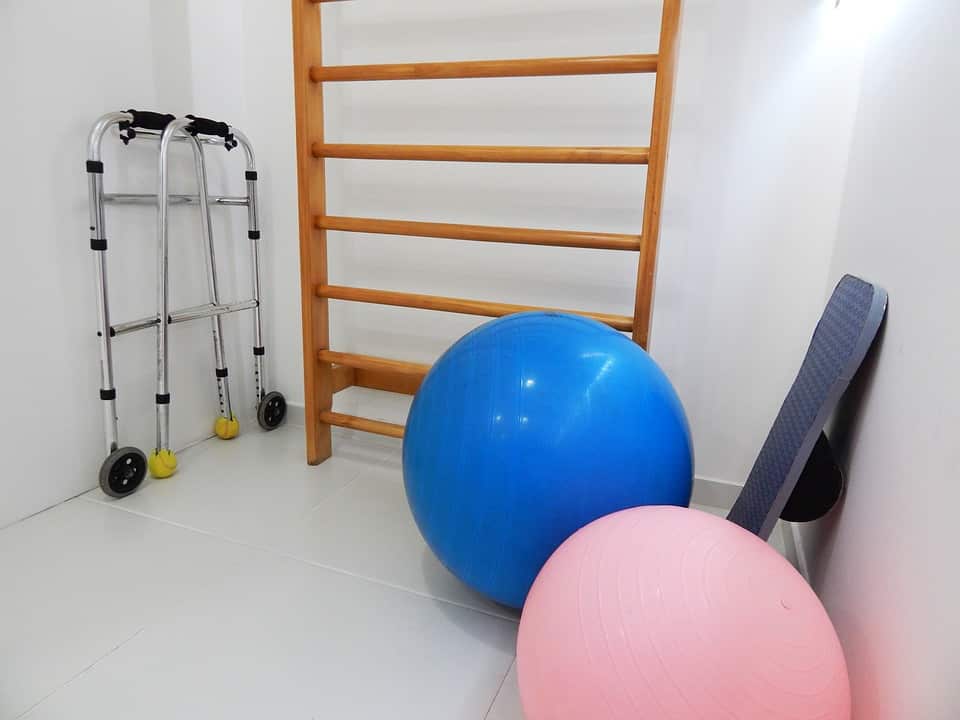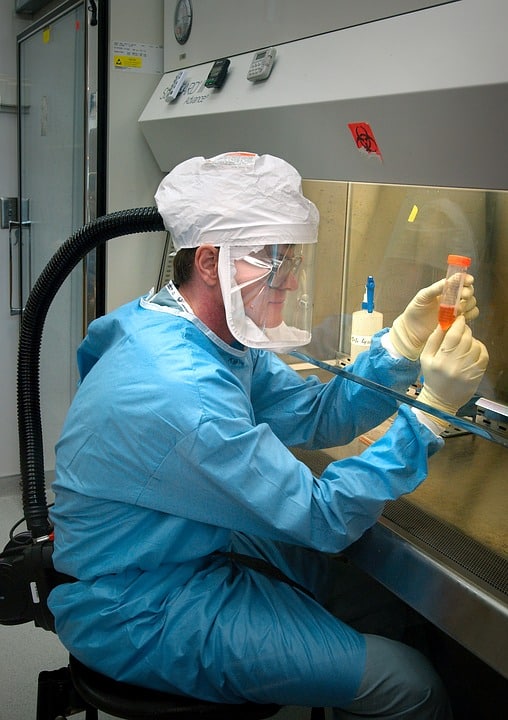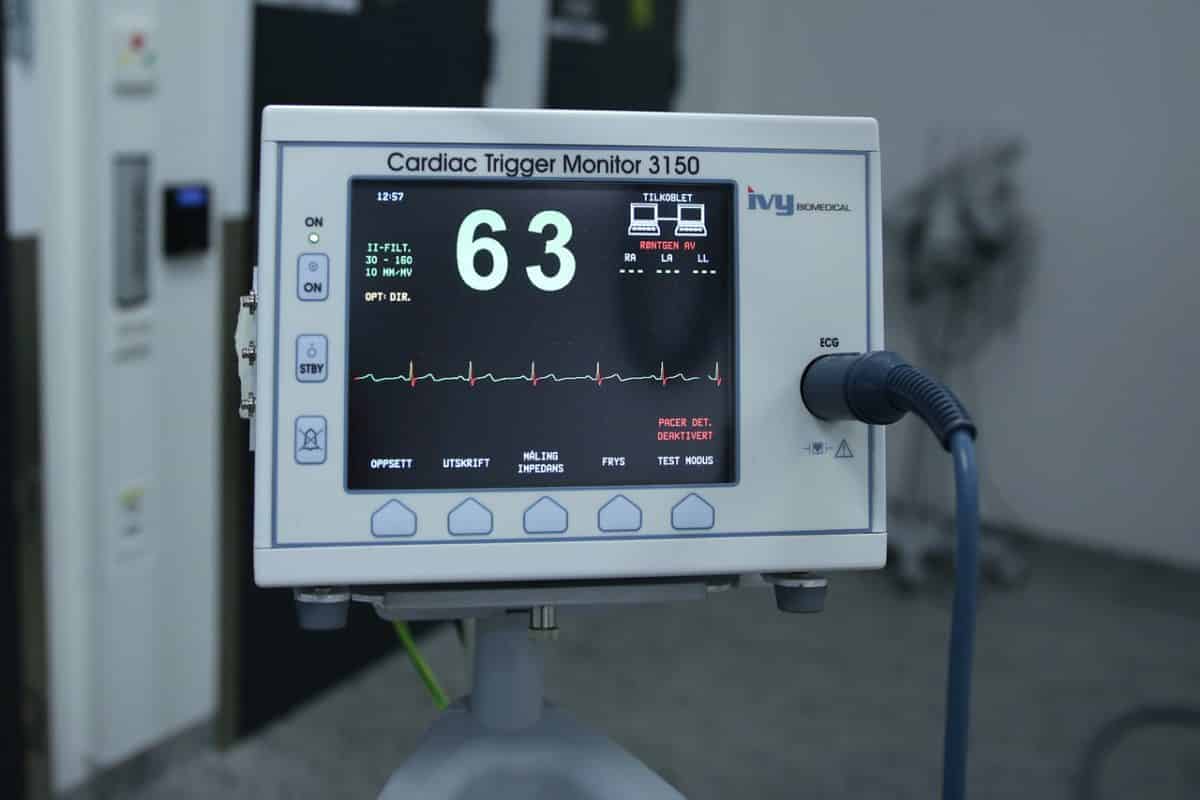I am a graphic artist and the owner of a full service advertising agency. I have well over twenty years of experience in that field. That is a long time in a vastly changing field, and it has been difficult to impossible to keep up at times. I’ve adopted several strategies to keep current. Usually I can just buy a new computer program, fiddle with it and learn how to use it well enough, but other times I have no idea what I am doing, even after messing with it a while.
One great strategy I use when that happens is to sub myself out to other companies. By doing overflow work for artists in related, but non competitive businesses I can learn their techniques for doing certain things that I’d be lost in otherwise. I can learn about the equipment and computer programs I need, and learn it on their equipment, while helping out. I get on the job training and pocket money, in exchange for helping them out when they are snowed under and have deadlines to meet. I’ve learned a lot working for print shops, publishing companies, and T-shirt designers in my area. I also get referrals to my company from most of the businesses I have subbed out to. It’s a great way to network and help out fellow artists, publishers and printers.
Another strategy I use is taking courses on different software at the local community college. I remember learning Page Maker and Microsoft Word back in the days of green screen. Community Colleges are a great way to stay current in your field, but I really had to beg to get them to allow me to register for Page Maker. It was a second year course in a curriculum, they were sure I’d be lost, but I aced it. I had 7 years experience in paste up at the time. I was just learning to do with a computer, what I’d been doing by hand for my entire career.
I love my job, most of the time, but there is no typical day. Every day is different and new. That is one thing I love about this business, and at times it is the thing I hate most as well. It all depends on how the day goes. Over the years my business has evolved and changed. I’ve always been the local go to gal “for all your advertising needs,” as my slogan goes. My career depends on my ability to adapt, and learn new skills.
I started out selling business cards, and quickly expanded to stationary packages. I’d design a logo, and put it on cards, letterhead, envelopes and personal sized stationary for local companies and non profits. I’ve also done tons of flyer designs, and created promotional materials for numerous non-profit organizations. I expanded to sign painting and then architectural renderings for local architects. I’ve done a lot of illustrations, including a contract for which I cataloged all the animals at a local drive through zoo. I started doing typesetting for publishers and finally went into publishing myself with a local “things to do” paper. I have clients, and I do whatever they ask me to. I get new clients who demand more skills and I pick them up.
Almost everything I learned in college is completely out of date. Nothing in the publishing field is done the same way it was 30 years ago. Even advertising principles have changed. My field has changed, and I stay hard pressed to keep up with the new technology and the new philosophies and techniques of modern advertising.
As a woman, when I was younger, it got pretty rough a few times. Selling business cards to used car salesmen was tough, and I had to flirt enough to sell without ending up “going for a ride in one of the new demo cars.” It was a tight rope, but I learned to handle that sort of thing as I got older. I’ve had clients make moves on me, and had to turn them down without loosing work. It isn’t easy but it can usually be done. Making a good excuse such as “I’m seeing someone” usually works. I learned to always tell them I was engaged, even if I wasn’t seeing anyone at the time. Now, since I am older and married, it isn’t an issue anymore.
I took Latin in high school, and it has served me well. I can usually read in any Latin based language, at least well enough to glean the general idea. I’ve never needed a foreign language directly for work though. The closest would be reading the directions on a set of French art pens. I can read in French, Italian, and Spanish at least to a degree, but I can’t understand those languages when they are spoken.
If I had to rate my profession on a scale of one to ten, I’d have to give it a 10 and a 1. It’s all or nothing in this field. If I have work, and I know what I am doing that day, my work is a 10 plus. If no one has called, and I have to go out and beat the bushes to find work, then it’s still a 10. If I call my regular clients, go out on cold calls, and come home without work, then it becomes a 1. My business is both seasonal, and very sensitive to the economy. Needless to say things have been slow for a while, and I am using the time to become more tech savvy. Even in good times, the months between January and April are dead. I usually just hibernate, career wise. I plan my year so that I just budget to spend very little, and cut the business to bare bones in January and February. I start gearing up again in March.
I think the toughest thing about my job is negotiation. I’ve had to learn the hard way not to let clients barter me out of house and home. Collections can be tough after it becomes an issue, as well. One thing I have learned is to access the risk of getting stuck with the last job and having to eat it. If I sense they are going to leave me stuck, once they get what they want, I charge a 15 percent higher rate. I’ve never been wrong on this instinct, but when it happens, I still walk away with enough to cover that last job. Most people will take about six or eight jobs before they leave you stuck. I always said that if I misjudged someone, I’d make it up once they proved themselves with some free work, but I’ve never had to do that.
When it comes to striking a deal, I have learned that even though I try to fit any budget, if I get a client who makes money and still tries to get something for nothing the best thing to do is to stick to my price, and not compromise quality so they can save money. I had a nasty altercation with a woman who hired me to paint a $100 dollar sign for $40. I let her take advantage of me really. Then she wouldn’t pay, and kicked the tires on my work. She was trying to get out for $20. I still get angry when I think of it, but I did learn not to do business with people who think I should work for free. Now I stick to my rates. If they don’t like my rate I walk away.
Going to college is just the beginning of a career. Every business does things a little differently. Office procedures vary from one company to another. Printers have different requirements for the format of artwork and type set. If artists and publishers cannot adapt to each and every circumstance or requirement they loose money. I’ve gathered that most fields are the same way. When people get a job, they can’t expect the standard to be the same as what they turned in for school projects.
I was always an artist. From the time I was twelve I was having shows, and selling my work, but I considered going into social work, or becoming a veterinarian as a career. I often wish I had become a veterinarian, because of the money. The pay has never been great. I’ve gotten a lot of local attention and popularity, but popularity and a sense of accomplishment do not pay the bills. On bad days, I wish I was a veterinarian. On good days, I am very proud of what I do.
Every day is a strange day when you are an artist. Our perceptions are different, and we tend to see even common objects in new ways, as if they were alien. It gets even stranger when uncommon things happen though. I remember once, I made a cold call to try to get work from a local architect. He was gruff with me, and I understood why. The artist who formerly did his architectural renderings had recently gone blind, and was dying. I hadn’t known that when I went to him, but I had felt led to visit him on that day. I was driving by and my inner voice had said, “Stop there!” My inner voice is almost never wrong. I was saddened by his story, and when I saw this man’s work, I knew that my style was so different that this architect would never be satisfied. I am a photo realist, and his former artist was an impressionist. I’ve never done impressionist work before, and it was mostly out of fashion at the time. I still made my pitch, but I didn’t stand a chance because of this old architect’s love for his previous artist’s impressionist work. I could not sell him on photo realism. He seemed irritated that I tried.
There was no way I could do the kind of work this man wanted, even though I am versatile. The old guy was a master in his style. I had to bow my head in awe of his talent. There was so much emotion in his work, which screamed what my paintings could only whisper, because of the difference in style. The architect was in a very bad mood, feeling he would never find another artist like his friend the impressionist, and he was sad. I was sad to loose a great talent in the field as well.
As I was leaving, the old architect called me back. He had a strange look on his face and his tone was almost robotic. His eyes looked strangely blank. He gave me the phone number and address of someone who needed my services. He even called ahead for me and set up an appointment for me to go over there immediately. From that I landed one of the biggest contracts of my career.
I’ve always been puzzled by that strange shift in his demeanor, and the fact that he helped me, even though he seemed irritated and angered by my mere existence moments before. That gruff old man truly did me a good turn, but it was very strange how he became so robotic in his voice and manner. It was if he were temporarily under the control of something other than himself.
There are many things that make me happy about my job. The moment I get a new client order is thrilling, as is the moment I get paid, but the most thrilling moment is hard to describe. When I am working at my art table, and I suddenly realize that I am creating something I love, it is just an amazing experience. I have perhaps been in autopilot working on details and just doing what I have done so many times before, and suddenly I say, “Wow, look what I just did!” Later when I turn it in to my client and he feels the same way, that’s just magic too.
As an artist I want my own brand of chaos and my own work environment. I do not like to rush. I actually work faster when I do not rush. Still I have to go into other offices and work occasionally, and the one thing I cannot stand is someone standing over my shoulder wanting me to hurry up. The other thing I hate is being interrupted. For that reason I prefer my own office to going into other people’s zones. I especially dislike sharing workspace with people who move things when you walk away for a moment. In general though, I do enjoy working with fellow artists from time to time, and to have someone to chat with while I work. The best situations I have found are the ones where I can work at work, and then take stuff home to work on as well.
As an artist, ad copy writer, and publisher, I have a terrible work balance. I am a natural sixty hour a week worker. I am easily obsessed with my work, and tend to become so absorbed that it’s hard to even say I am conscious, except in my own little world where I work. I have also been a home school mother, a wife, and the daughter of elderly parents, while trying to manage this all consuming career. I’ve had to take time off completely before, and I’ve had to cut back on hours as well at times, just to manage the rest of my life. It often seems that, other than the things I am passionate about, like my kids, my family, and my work, I am constantly putting out fires. I am terrible with book keeping and housework, and everything else that is boring. I have no self discipline when it comes to drudgery.
It is hard to calculate how much money I make. It is for most self employed people. I try to keep my rates at about twice what I’d make working for someone else doing the same job. This is because of all the time I spend cultivating clients, and looking for work. I generally try to make $20 to $30 an hour when I can find work. Sometimes I’ll work for less, if I am desperate, and it is something I want to do. Many times though in print or web publishing it is a gamble. You put up a site and hope to get advertisers. Things are slow this year and I’ll be lucky to get $20,000 over expenses. If I worked for someone else, I’d probably get $35K if I could get such a job. From a monetary standpoint I should have been a veterinarian.
I thought that I had reached the height of my career when I designed the logo for our city’s retail business sector. I was thrilled when a local artisan asked my advice before casting it in gold for limited edition lockets.
All that was nothing though, compared to giving birth to my first publication. I was later stunned to hear that a prestigious four year college was using my little monthly newspaper to teach journalism. These students actually studied my writing style for weeks. I never took journalism, even at a community college, yet this professor with a PhD. thought my work was something these students should know. My paper was written in a tongue and cheek folksy style, which played up my being a local country gal, welcoming newcomers and visitors to our area. I saw people reading my paper, and that felt good. My advertising clients were also thrilled because their sales increased exponentially from my advertising. Often business doubled or tripled for them, and I was very happy about that.
In my line of work, I’ve done business with all sorts of people, from the most reputable and upstanding business people, and the millionaire philanthropists of our city to the absolute dredges. If their money is green, and they need artwork I take the job. Collections on some of those were somewhat challenging. I once did work, for a shady guy at my 15 percent increased rate. He was involved in some sort of organized gambling, but I have no idea of the details, nor did I want to know. Sure enough he left me stuck with $300 worth of work. I called to collect, and he informed me that he owed certain debts, and that the mafia had driven a truck through his home. He said, “Don’t you think if I had a dime, I’d have already paid it to them. All I have is my soon to be dead body.” I verified by driving by, that a truck had indeed rammed his brick ranch style home, and that it was quite a mess. I wrote off the debt, and I’d just as soon forget about it. The money was good while it lasted. While I didn’t anticipate his end to be so dramatic, I knew he’d eventually leave me hooked, and had charged accordingly.
I have a two year degree in advertising design. That was good enough when I was twenty, but today people need a masters to get anything out of life and they might as well go for their doctorate. If I had a bachelor’s degree I could teach art in a high school or community college, during hard times like this. More education might be nice, even for me, but my technical training is so out of date, I’d have to start all over at age 50.
In order to truly succeed in my field, you need a lot more than an education, or even a good drawing hand, although that may be helpful. What you need is good business sense, and sales skills. If I were a bit more capable of conning people into paying me more than a living wage, I’d be making a lot more money. I know some advertising agents make really good money. They know how to sell to the rich and powerful, and get them to spend a lot of money. I’ve spent my career listening to people tell me I should help by trimming my price.
Business can be better in large cities. Personally I found a ready market in our smaller city. The work was steady, considering the field I’m in. I got more local recognition, but less money. Overall advertising agencies are lucky to survive the first year of business. In my case I hung on by keeping my overhead down, and cutting my rates when I had to.
I do not recommend my field to anyone. If people are passionate, and this is truly what they want to do, then nothing anyone says will stop them. Encouraging someone who is not passionate, or who needs a lot of money isn’t fair. I can’t say it’s a good field. It is very unpredictable, subject to constant change, and the money is not really worth the effort required. Successful people in the field are constantly expanding their skill set, but unless they have the skills of a top salesman, a strong dose of street sense, mad tech skills, and also happen to be an extremely talented artist and writer. I don’t think they will make it big in the business. If you want money, be a doctor, don’t be an artist.
There are times in this field when I could take a three or even six month vacation, and no one would notice. There are other times when I stay up all night for days on end meeting deadlines. You can’t take a vacation when you’ve got clients to serve, unless you can get them caught up.
I lost a client while my father was in intensive care, because after months of meetings, canceled meetings, keeping me waiting, and changing his mind on what he wanted, the client set a deadline, without previously informing me and wanted to meet with me immediately. He said he wanted the work in three days, completed and executed, and he’d been yanking my chain for months. He was an awful jerk about it, and I sent him a bill for more than I’d have charged him if he’d taken the work. He said he’d pay me for my time, and I charged him for every minute of it, even driving time to our many meetings. I’d have cut him a deal ordinarily. As a result, the logo he is using looks like a first grader did it. Maybe he hired his kid. I know the artist was not a professional. I got nearly $800, when I’d have only asked $600 for a finished logo. Still I felt awful about it. From an artist’s standpoint, that was an utter failure, even though I got paid more. I get depressed every time I think of it.
If I enjoyed winter holidays I could take them, right after Christmas until spring, without pay of course. With the economy like it is, I could probably take a vacation even in June, but I can’t afford it right now. The economy has put my career on the skids, and while it has improved a bit recently it isn’t good.
Some people think that artists just paint or draw. Some do, but I find that painting and drawing doesn’t pay the bills. I have to write, paint, publish, and come up with all sorts of schemes, and advertising work. Marketing is a large part of it, and not just marketing your client’s work, but marketing yourself, always finding different angles, and different types of niches that you can fit into. This kind of work requires your whole heart, your whole mind, and at least half of your soul, every day, in order to make it work. It takes passion, and when your passion slips, you feel it immediately, right in the wallet.
My five year plan is to finally figure out how to use the internet to broaden my work in a big way. I am struggling with that currently. I am currently looking for the right angle to use all my skills to make money on line. Local business is a thing of the past, at least for the most part. I have struggled to keep small business afloat for years, but I am not going down with the ship. The internet is a place where anyone can use their skills to get ahead, and my current research should help me put together a plan soon.
I don’t have to draw anymore. Computer programs do that, and I am struggling with the feeling that I don’t really do anything in order to create artwork. I do of course. Adobe Photoshop, Paint Shop Pro, and Corel Draw don’t really just produce images by themselves, but it doesn’t feel like taking an art pen, or a brush full of ink and really drawing. Still, strangely I do not miss it. I have become more interested in copy writing, and selling over the years, because when it all comes down those are the skills that pay the bills. I can always produce art one way or another. That part is easy.
Over the years my field has broadened. I am no longer just a graphic artist. I write, I sell ad space, I cook up schemes for business promotions, and I mostly just do whatever works to earn a dollar for my clients so they can pay me. I have an incredibly flexible mind, and that is the main tool I use to make a living.






